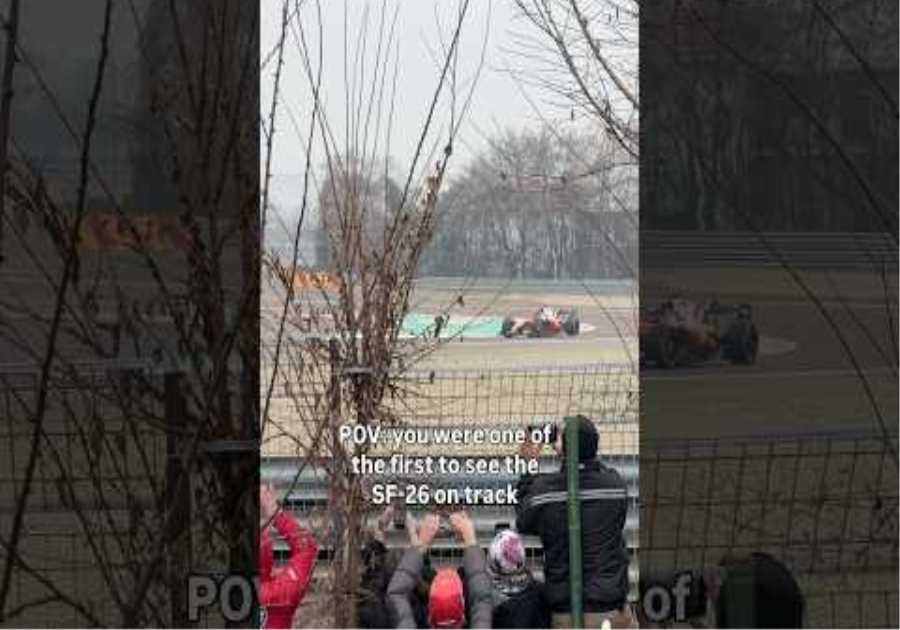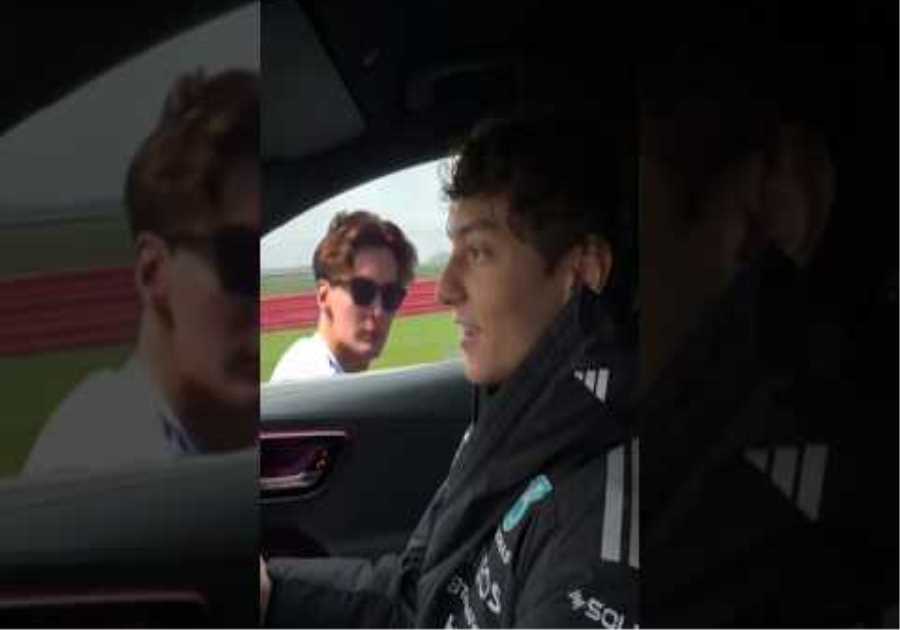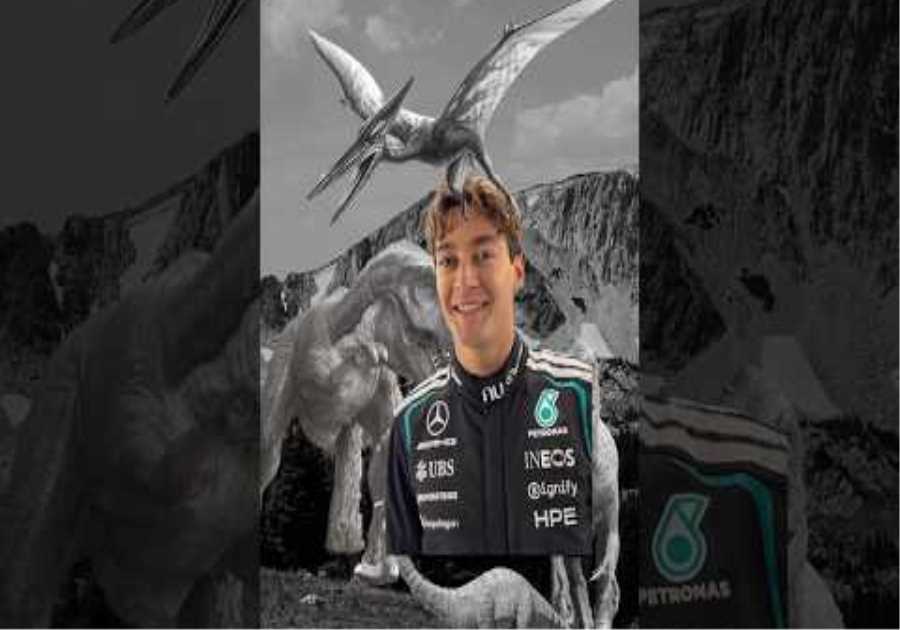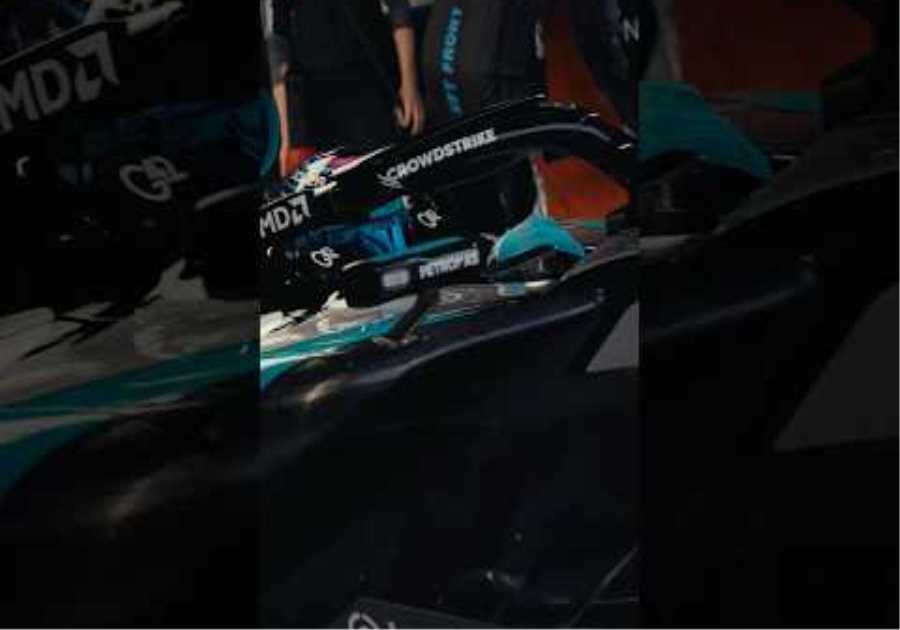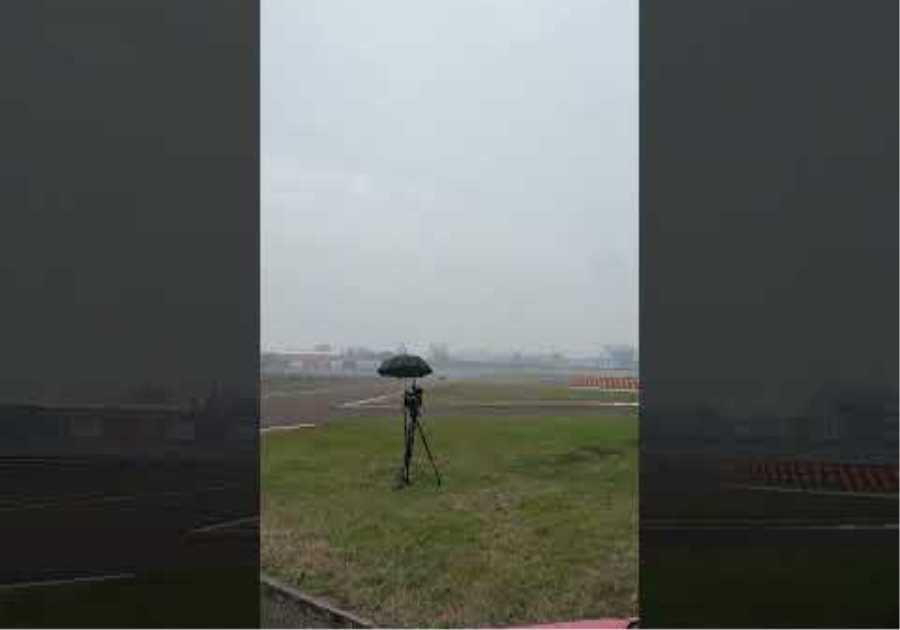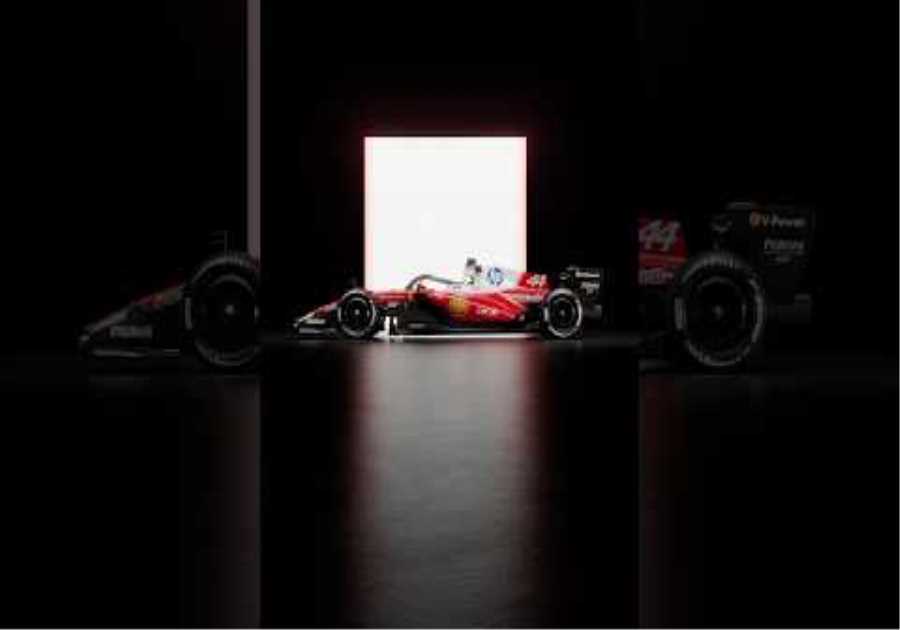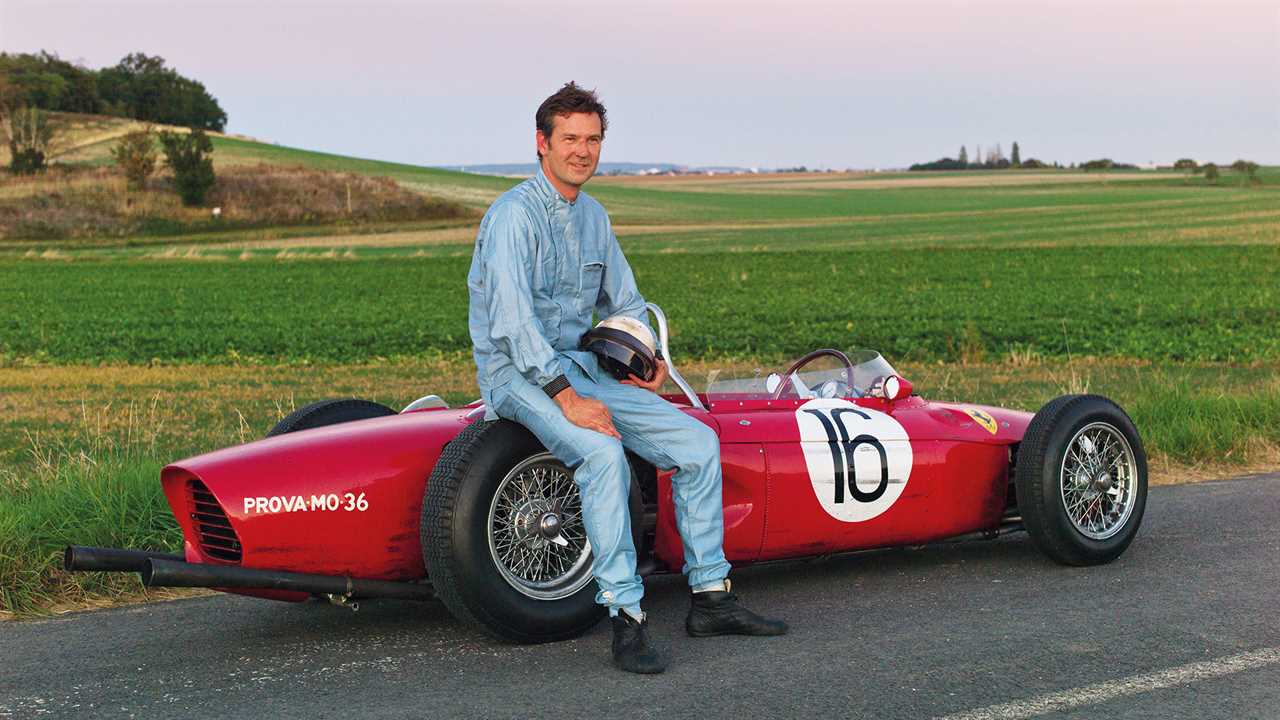
It was an emotional experience to drive the 156 Sharknose. It forced me to get in touch not only with my father, but with all of the experience he had had. It brought me closer to understanding how difficult and challenging the environment was to deal with the tragedies – and its frequency that we will never experience again.
The documentary is a long-running story, motivated by the desire to capture on film the people it worked with while that window was still open. I have so many questions that I wish I had asked my father a larger than life figure. The race brought us closer together, but that was such a short window of time – he got sick and there were difficult years. So the documentary was all of that: it put together who he was by understanding his experiences in the most poignant part of his life.
I had never set a date for this documentary to be finished. It’s still in the works and I never want to say that this is when it gets done. The work on it goes in batches: I get used up, then I put it on the shelf, then it goes around again. So far it has gone through three or four cycles. Every time I start getting back to it I can’t believe what a rich story it is. My father was never really able to speak as freely about his championship year 1961 as I think it deserves. It was fraught with so many complex emotions.
My father loved telling funny and entertaining stories. Those were the ones he repeated many times. But when it really came down to working with the team, I never bothered to ask them technical questions: what was the structure of the team like, who did you go to, Romolo Tavoni or Carlo Chiti about this or that thing the politics within Ferrari? That’s why I was so motivated to talk to these people who were there. I had great interviews with Tavoni and Mauro Forghieri, Carlo Benzi who was the accountant and Franco Gozzi the PR manager and asked them as often as I could. Everyone really wanted to share because they knew my father and what he was about. They were interviewed in Italian because I thought they would speak more freely (I had a translator with me and can speak some Italian myself). Then I translated and transcribed it so that I could read it like a book. It’s phenomenal when I read back the interviews.
I was busy with the camera in 2009 and ’10. Ferrari really valued my father’s relationship with them, and I saw it firsthand in how much they made me feel more like family. It was amazing walking around the factory premises. I expected to travel all over Italy for my interviews, but instead the story stayed right there in Maranello and the surrounding area. Italians don’t move very far I think.
“Everyone really wanted to share because they knew my father”
My dad was always busy with hobbies just to fill up the time living and racing in Europe. These days, an athlete’s schedule is so much more extensive and they can get anywhere much faster. At the time, they were on a boat from Europe to Argentina or flew to Buenos Aires with around 17 stops to get there.
My own experiences with life and racing in Europe helped me understand more about what it must have been like. It is a lonely experience to be so far from home, but he has had photography and his visits to antique shops … all his life he has loved music playback machines, beautiful Swiss music boxes and self-playing music playback machines. As a boy he played a bit of the piano and french horn, but he was more fascinated by things that could play themselves that were mechanical.
He was obsessed with restoring older things, which led him into his vintage car business. Last year, as a pandemic project, I auctioned everything. We sold the family home we all grew up in and more than 800 lots in three Gooding & Company auctions. Everything from memorabilia to auto parts – it was so much that I need a little break. I just burned out a little from my father’s life.
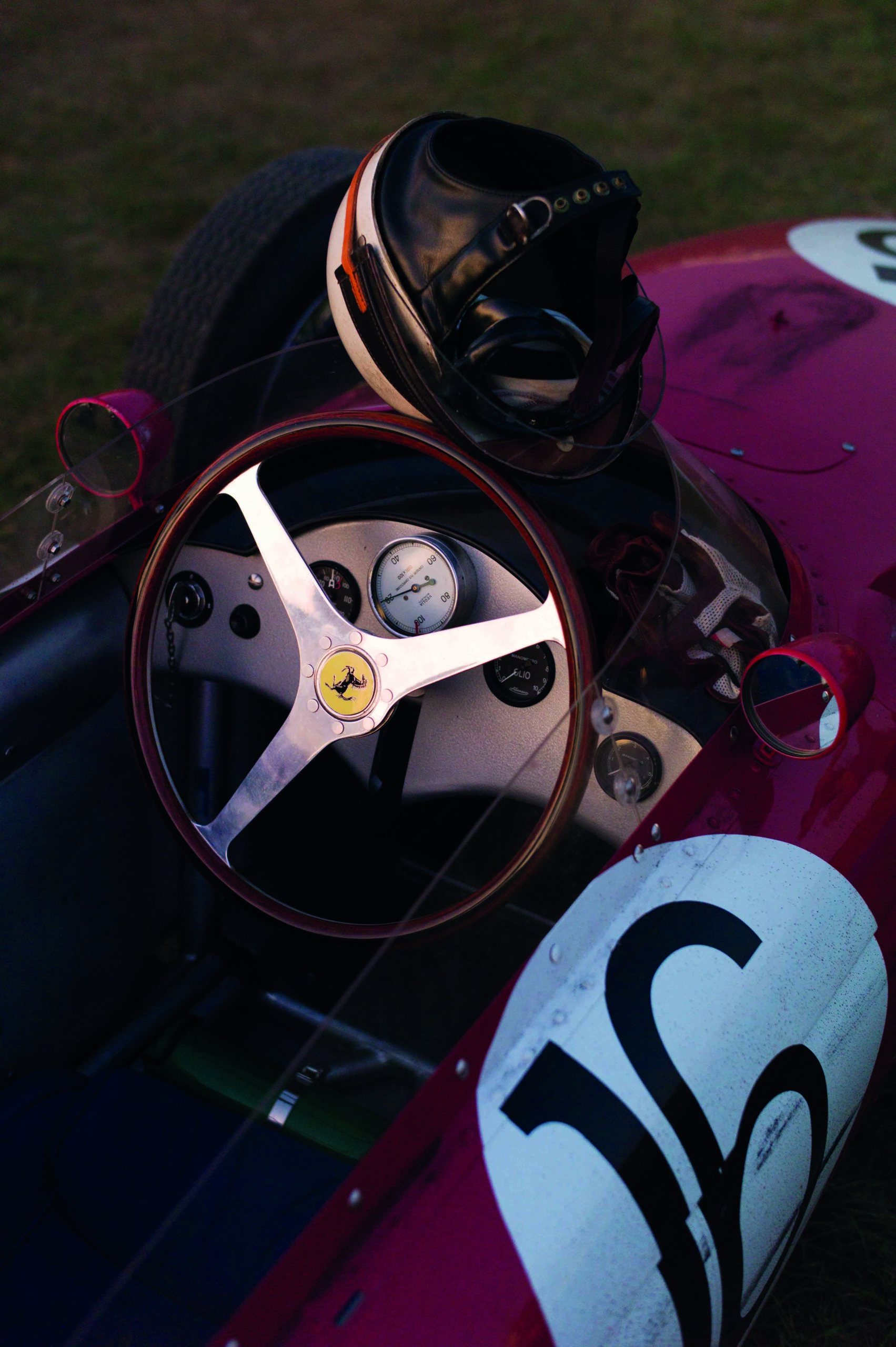
Many original features convey an authentic feel of Formula 1 racing in the early 1960s
Ernst Schlogelhofer
Looking back on 1961, it is remarkable how few world championship races there were in that season – only eight and only the best five results were counted. They had all the time and anticipation between them. One thing I learned is that team politics played a bigger role than I imagined. We see team assignments today, but there wasn’t an established team leader dynamic during that period. It was left to the drivers to fight for position within the team and confidence could be extremely high from one race to the next and then extremely low. For me he was clearly in a position where Ferrari could have benefited from establishing him more as a team leader. He was more established on the team, had just won a win at the end of the preseason, and was ready to take on that role. But neither he nor Trips was ever granted that role. Ferrari left it up to them to challenge it while team assignments played a role in influencing their results. For a team that is capable of an honest run in the championship that can really add to the tension and have undesirable consequences. This is probably what my father liked least, this chaotic, unstructured aspect of Ferrari. He had to fight for every win and every result on and off the track.
He and Trips were warm to each other from the car. But they were very competitive and selfish for the same thing. When they were on the racetrack, human nature took over and it played out the same as it does today, even if it was an era where you had to play nice.
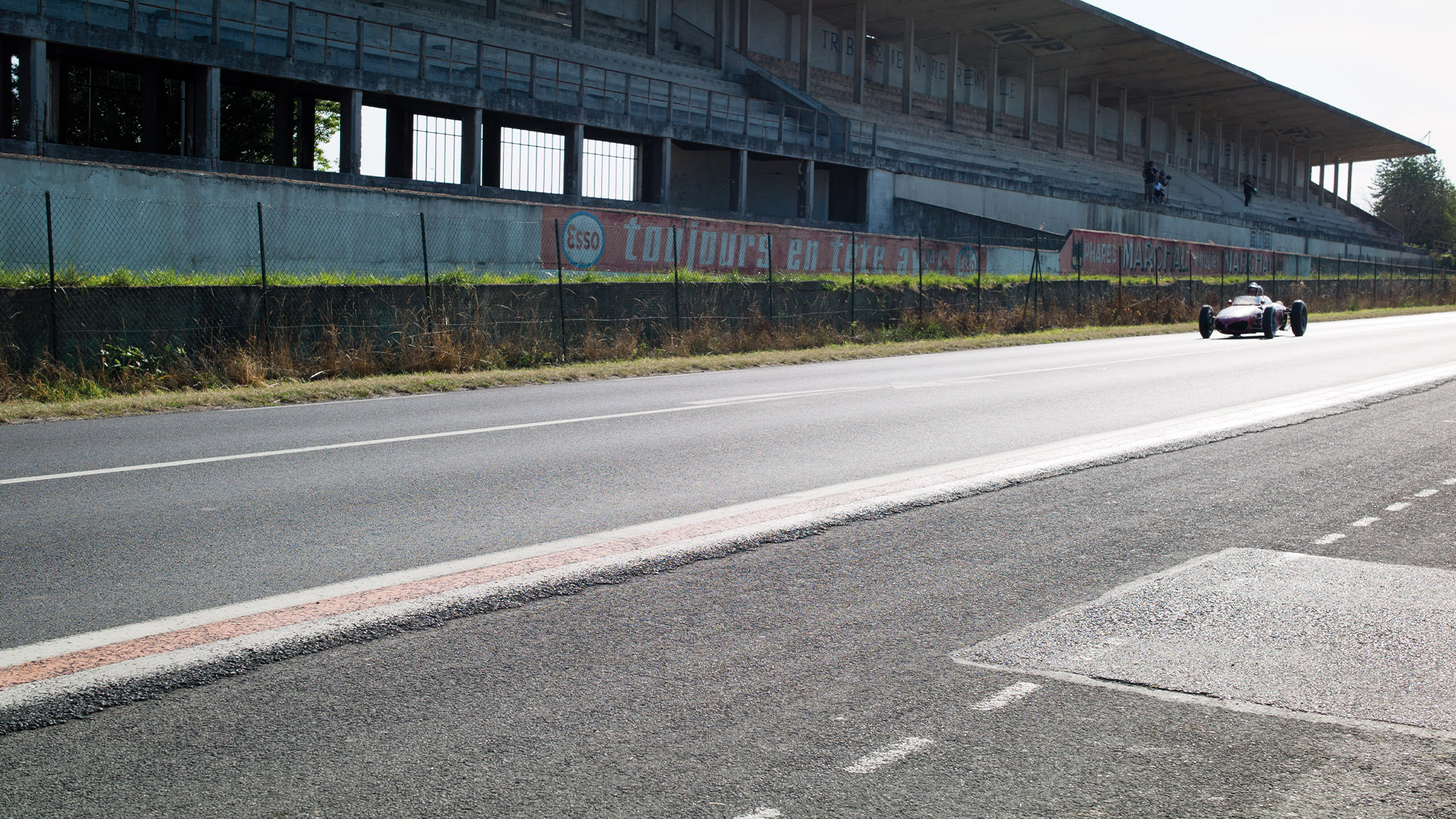
Running against the directional flow of the circuit in front of the magnificent relic that is the main grandstand in Reims.
Ernst Schlogelhofer
The relationship with Richie Ginther was interesting. Richie was the younger brother of a friend in the neighborhood he grew up in. They all grew up together in the post-war period and were interested in cars and hot rodding. My father and Richie had known each other for years before they even raced. Phil would drive Richie in his MGTC from Santa Monica to her jobs at International Motors in Hollywood, a foreign auto import agency. To ponder where they would be 12 years later, teammates as factory Grand Prix drivers at Ferrari.
When they got to Ferrari it was very clear where they were. For my father, it was like having a wingman with Richie who probably had to stay in this place. He should never be the more dominant player, and that was probably an unspoken rule between them. There were moments when Richie wanted more, he could see him getting better and embed himself in the team. In many ways, Richie was more focused on the technical aspects of car development and stayed in Italy all winter. He was much better prepared for the 1961 season and more familiar with the car than my father.
When they arrived in Monaco, Richie received the new, unproven latest engine development of the 120 degree engine. He immediately proved his speed and was the fastest of the Ferrari team-mates in this race. But I don’t think he can maintain this high pace of performance, and my father could. Their relationship remained very good until they broke up a little a few years later during the Ford years. Richie had his own great ambitions and hated playing second fiddle.
This season has been tense between trips and my dad. Wolfgang had physical problems that sometimes handicapped him, a diabetic problem. I think he learned how to handle it and still perform well, but he blew a little hot and cold. He was nowhere in Monaco and had a terrible weekend while Richie and my dad were fighting right there, trying to keep up with Stirling Moss.
After a weekend like this, my father must have thought he looked good for the championship. But then won at Zandvoort Trips. Here my father struggled with the idea of team assignments. He had this idea of loyalty in him. In Zandvoort, the crowd of German spectators who came to the race said: “Phil, it’s time for Trips”. My dad had the pace to win at Zandvoort but he was still trying to go nowhere with this game.
There was really a back and forth between them this year and Trips obviously had the pace given the qualifying times. But I still think my dad was ahead and it was really losing his championship.
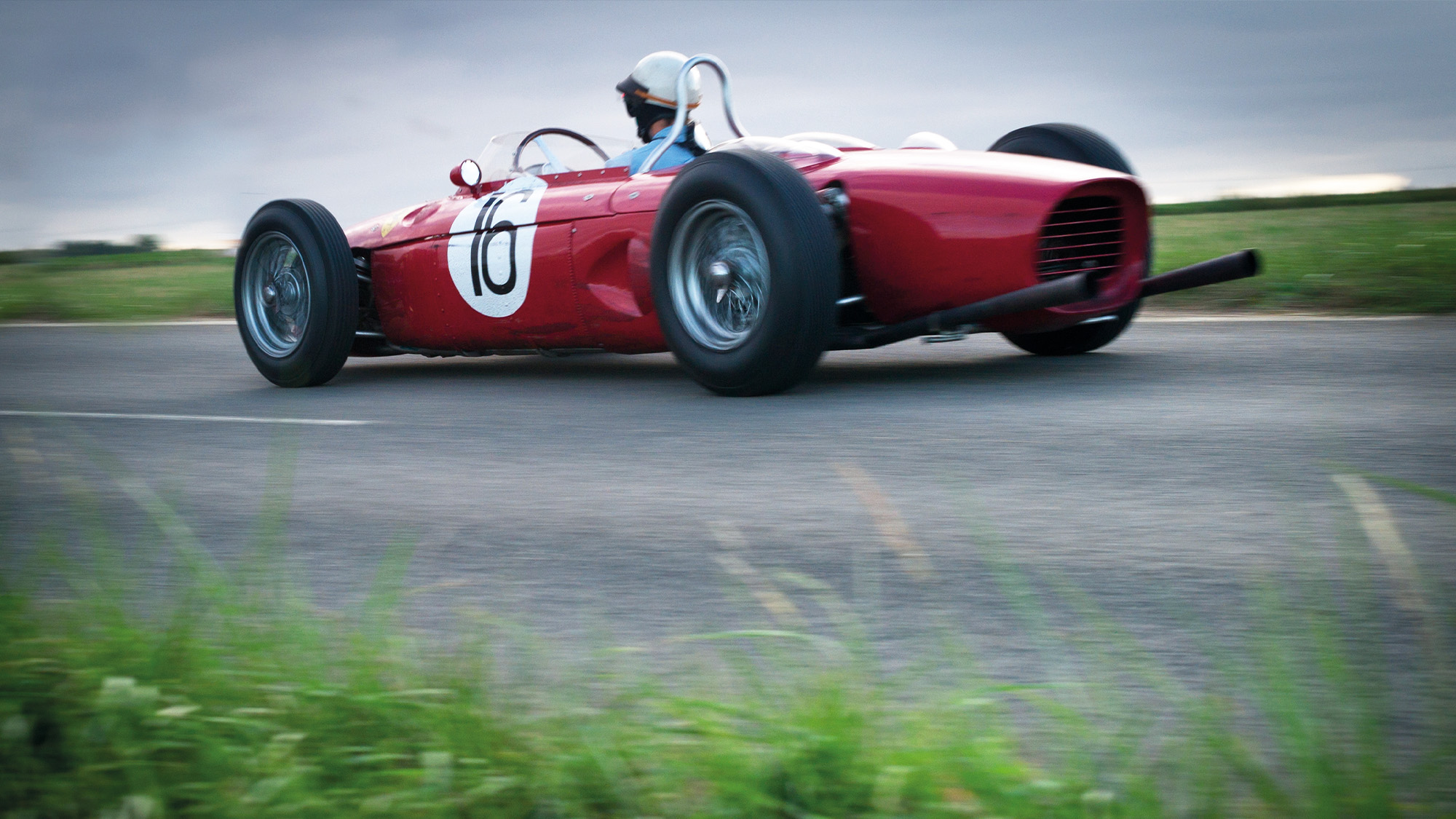
Derek Hill says the shoot with the 156 in Reims and also in Zandvoort was an emotional experience. Racing brought him closer to his father before Phil fell ill and died in 2008
Ernst Schlogelhofer
Monza was the defining moment in my father’s career. It wasn’t just the race, it was all the preparation without knowing who the team was trying to win or if they were neutral. The tension between him and Trips at the time was so high because they both knew they had an equal chance of winning, and in fact, Trips had a slight four point lead. The things that Enzo Ferrari said to him in practice, and the fact that the car was not assembled well, with a gearbox that was out of order and an engine that was no longer powered, my father had to do Stand up for yourself like never before in your own team. And I think the team was stuck in the same place by orders from Ferrari, but they really liked my father who had developed such a close relationship with them. All of these forces were at play – and then we know how the race developed. It was the greatest moment in my father’s career and the worst at the same time. Thinking of all the conflicting feelings that came his way – it must have been very difficult.
“It was the greatest moment in my father’s career and the worst.”
A few years later, he helped advise on Grand Prix film, with a James Garner character very much like him and a script in Monza that had Echoes from 1961. I love to go back and check it out because every time you discover something you’ve missed out on doing. It was then that my father began to enjoy life. He wasn’t enjoying his career at the time because he was so excited: you will either kill yourself or mess things up and not achieve what you set out to do … he was extremely worrying by nature.
The post Lost Sharknose Ferrari 156 drives again – Motor Sport Magazine first appeared on monter-une-startup.
